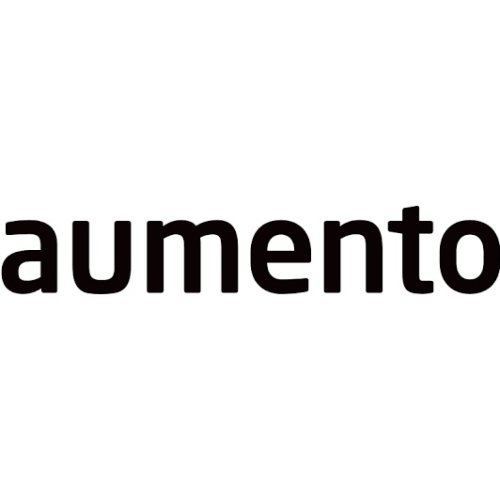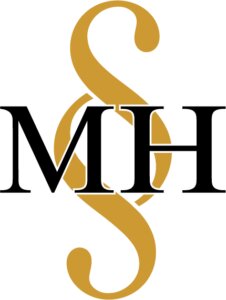Best Labor Law Lawyers in Denmark
Share your needs with us, get contacted by law firms.
Free. Takes 2 min.
Or refine your search by selecting a city:
List of the best lawyers in Denmark
About Labor Law in Denmark
Labor law in Denmark is a comprehensive framework designed to regulate the relationship between employers and employees, ensuring fair working conditions, equitable treatment, and job security. Danish labor law is characterized by the flexicurity model, which combines labor market flexibility with social security. It covers various aspects such as employment contracts, working hours, rest periods, wages, health and safety, and the rights of employees and trade unions. A significant portion of labor law in Denmark is governed by collective agreements negotiated between employers and unions.
Why You May Need a Lawyer
There are several situations where you may require legal assistance in labor law matters in Denmark:
- Employment Disputes: Conflicts between employers and employees, including wrongful termination, discrimination, and unfair treatment.
- Contract Issues: Understanding or disputing employment contracts, non-compete clauses, and remuneration terms.
- Collective Bargaining: Difficulties or disputes related to collective agreements or union memberships.
- Workplace Bullying or Harassment: Legal action or advice related to workplace harassment, bullying, or discrimination.
- Restructuring and Redundancies: Assistance with the legal aspects of company restructuring or employee layoffs.
Local Laws Overview
Denmark's labor laws highlight several key aspects that are crucial for both employers and employees:
- Working Hours: Standard working hours are typically 37 hours per week, but this can vary based on collective agreements.
- Minimum Wage: There is no statutory minimum wage in Denmark; wages are generally determined through collective bargaining.
- Employee Rights: Employees are entitled to certain rights, including annual leave, maternity/paternity leave, and sick leave.
- Termination of Employment: Notice periods and severance pay vary depending on the employee's length of service and the terms specified in agreements.
- Health and Safety: The Danish Working Environment Authority regulates workplace safety, requiring employers to maintain a safe and healthy workplace.
Frequently Asked Questions
1. What is the "flexicurity" model in Denmark?
The "flexicurity" model in Denmark is an approach that combines labor market flexibility with social security, facilitating a dynamic labor market while providing a robust safety net for workers.
2. Do I need to join a labor union in Denmark?
Joining a labor union is not mandatory in Denmark, but it can provide benefits, including legal assistance, negotiation on behalf of workers, and collective bargaining rights.
3. How are wages determined without a statutory minimum wage?
In Denmark, wages are set through collective bargaining agreements between employer associations and trade unions, reflecting industry standards and economic conditions.
4. What should I do if I face workplace discrimination?
If you experience workplace discrimination, you can file a complaint with your employer, seek assistance from your union, or file a complaint with the Equal Treatment Agency.
5. How much notice is required for termination of employment?
The notice period for termination depends on the employee's tenure and collective agreements. Employers must generally provide notice ranging from one to six months.
6. Are non-compete clauses enforceable in Denmark?
Non-compete clauses are enforceable but subject to strict legal requirements. They must be reasonable in scope, duration, and geographic area and must compensate the employee.
7. What are my rights regarding family leave?
Employees in Denmark are entitled to maternity/paternity and parental leave, allowing time off work with certain benefits and job protection.
8. How can employees participate in workplace decision-making?
Through collective agreements and cooperation committees, employees can participate in decision-making processes and discuss workplace conditions.
9. What is the role of the Danish Working Environment Authority?
The authority ensures compliance with health and safety regulations, carrying out inspections, advising employers and employees, and enforcing workplace safety standards.
10. Can I be dismissed while on sick leave?
Employers can terminate employment during sick leave, but it must not be discriminatory or in violation of collective agreements or employment law protections.
Additional Resources
For further assistance, consider consulting the following resources:
- Danish Working Environment Authority: Provides guidance on health and safety standards.
- Legal Aid Institutions: Offer free or low-cost legal assistance for eligible individuals.
- Trade Unions: Offer support, advice, and representation on labor law issues.
- Danish Bar and Law Society: Can help you find a qualified labor law attorney.
Next Steps
If you require legal assistance in labor law, consider the following steps:
- Document Everything: Gather all relevant documents, such as employment contracts, correspondence, and any evidence related to your issue.
- Consult with a Lawyer: Seek a qualified labor law attorney to review your situation and provide tailored advice.
- Join a Union: If applicable, join a trade union for support and potential legal assistance.
- Research Your Rights: Familiarize yourself with Danish labor laws and regulations through trusted resources.
Lawzana helps you find the best lawyers and law firms in Denmark through a curated and pre-screened list of qualified legal professionals. Our platform offers rankings and detailed profiles of attorneys and law firms, allowing you to compare based on practice areas, including Labor Law, experience, and client feedback.
Each profile includes a description of the firm's areas of practice, client reviews, team members and partners, year of establishment, spoken languages, office locations, contact information, social media presence, and any published articles or resources. Most firms on our platform speak English and are experienced in both local and international legal matters.
Get a quote from top-rated law firms in Denmark — quickly, securely, and without unnecessary hassle.
Disclaimer:
The information provided on this page is for general informational purposes only and does not constitute legal advice. While we strive to ensure the accuracy and relevance of the content, legal information may change over time, and interpretations of the law can vary. You should always consult with a qualified legal professional for advice specific to your situation.
We disclaim all liability for actions taken or not taken based on the content of this page. If you believe any information is incorrect or outdated, please contact us, and we will review and update it where appropriate.
Browse labor law law firms by city in Denmark
Refine your search by selecting a city.















